Science Fiction immerses the reader in an alternate universe, hooking us in with a stirring narrative and intricate world-building. Along the way, it can also challenge us to take a good look at our own reality, and question it with an imaginative, open mind. Imagination is an integral element to envisioning concrete change, and although certain magical elements like power over the environment and time travel might be out of reach (at least for the present moment), fantasy and sci-fi novels allow us to imagine worlds that we can aspire towards.
Here are six select novels that are not afraid to challenge our worldviews and start conversations.
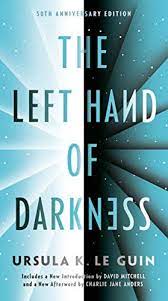 Left Hand of Darkness by Ursula K. Le Guin (Ace Books)
Left Hand of Darkness by Ursula K. Le Guin (Ace Books)
Ursula K. Le Guin’s groundbreaking work of science fiction — winner of the Hugo and Nebula Awards.
A lone human ambassador is sent to the ice-bound planet of Winter, a world without sexual prejudice, where the inhabitants’ gender is fluid. His goal is to facilitate Winter’s inclusion in a growing intergalactic civilization. But to do so he must bridge the gulf between his own views and those of the strange, intriguing culture he encounters.
Embracing the aspects of psychology, society, and human emotion on an alien world, The Left Hand of Darkness stands as a landmark achievement in the annals of intellectual science fiction.
Amazon | Barnes & Noble | IndieBound | Bookshop
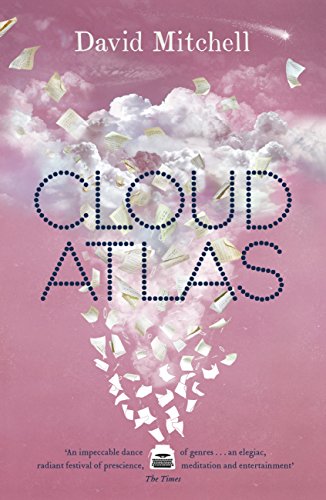 Cloud Atlas by David Mitchell (Random House)
Cloud Atlas by David Mitchell (Random House)
A postmodern visionary and one of the leading voices in 21st-century fiction, David Mitchell combines flat-out adventure, a Nabokovian love of puzzles, a keen eye for character, and a taste for mind-bending, philosophical, and scientific speculation in the tradition of Umberto Eco, Haruki Murakami and Philip K. Dick. The result is a narrative that boomerangs through centuries and space brilliantly and is as profound as it is playful. In this groundbreaking novel, an influential favorite among a new generation of writers, Mitchell explores with daring artistry fundamental questions of reality and identity.
Amazon | Barnes & Noble | IndieBound | Bookshop
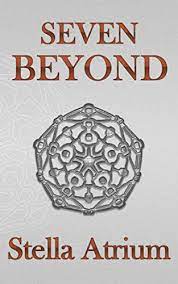 Seven Beyond by Stella Atrium (Stella Atrium Writes)
Seven Beyond by Stella Atrium (Stella Atrium Writes)
Resident aliens have escaped a lost homeworld on a quest to find the New Restingplace of the Dead. A blood feud follows them to a colony on Earth. Can they avoid assassination and reach their destination before time runs out?
Seven Beyond by Stella Atrium is a multi-layered science fiction/fantasy tale that quickly sweeps readers into intriguing worlds where places and events are vaguely familiar, yet oddly strange, sometimes futuristic, sometimes anachronistic. New clues are revealed at a fast pace, and each page adds a facet to the author’s hall of mirrors.
Amazon | Barnes & Noble | IndieBound | Bookshop
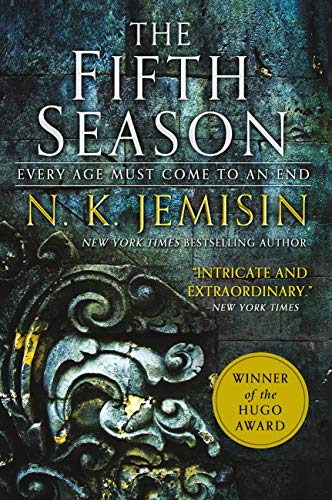 The Fifth Season by N. K. Jemisin (Orbit Books)
The Fifth Season by N. K. Jemisin (Orbit Books)
A sci-fi masterpiece, recipient of many awards, and first entry in the Broken Earth series, this book takes place in the far future, on an Earth that’s completely unrecognizable. The change between seasons no longer means swapping out jeans for shorts. Seasons in this world are massive natural disasters that last decades. The world that N.K. Jemisin builds is unique, unlike anything that’s come before it, drawing on a mix of science fiction and fantasy and grounded in real-life science. Within the novel, there are multiple factions at play, each with their own ideas about how to lead humanity into the future, and each willing to stop at nothing for the sake of the greater good.
Amazon | Barnes & Noble | IndieBound | Bookshop
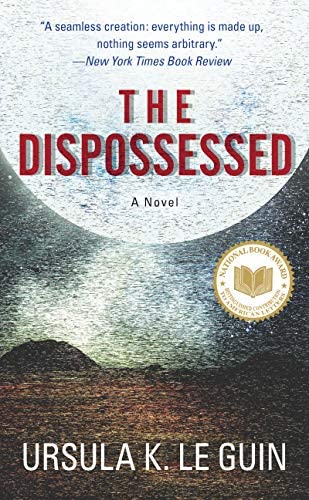 The Dispossessed by Ursula K. Le Guin (Harper Voyager)
The Dispossessed by Ursula K. Le Guin (Harper Voyager)
From the brilliant and award-winning author, Ursula K. Le Guin comes a classic tale of two planets torn apart by conflict and mistrust — and the man who risks everything to reunite them.
A bleak moon settled by utopian anarchists, Anarres has long been isolated from other worlds, including its mother planet, Urras — a civilization of warring nations, great poverty, and immense wealth. Now Shevek, a brilliant physicist, is determined to reunite the two planets, which have been divided by centuries of distrust. He will seek answers, question the unquestionable, and attempt to tear down the walls of hatred that have kept them apart.
To visit Urras — to learn, to teach, to share — will require great sacrifice and risks, which Shevek willingly accepts. But the ambitious scientist’s gift is soon seen as a threat, and in the profound conflict that ensues, he must reexamine his beliefs even as he ignites the fires of change.
Amazon | Barnes & Noble | IndieBound | Bookshop
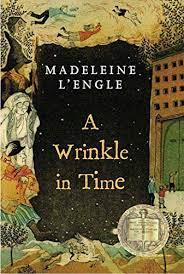 A Wrinkle in Time by Madeleine L’Engle (Square Fish Books)
A Wrinkle in Time by Madeleine L’Engle (Square Fish Books)
It was a dark and stormy night; Meg Murry, her small brother Charles Wallace, and her mother had come down to the kitchen for a midnight snack when they were upset by the arrival of a most disturbing stranger.
“Wild nights are my glory,” the unearthly stranger told them. “I just got caught in a downdraft and blown off course. Let me sit down for a moment, and then I’ll be on my way. Speaking of ways, by the way, there is such a thing as a tesseract.”
A tesseract is a wrinkle in time. To tell more would rob the reader of the enjoyment of Miss L’Engle’s unusual book. A Wrinkle in Time, winner of the Newbery Medal in 1963, is the story of the adventures in space and time of Meg, Charles Wallace, and Calvin O’Keefe. They are in search of Meg’s father, a scientist who disappeared while engaged in secret work for the government on the tesseract problem.

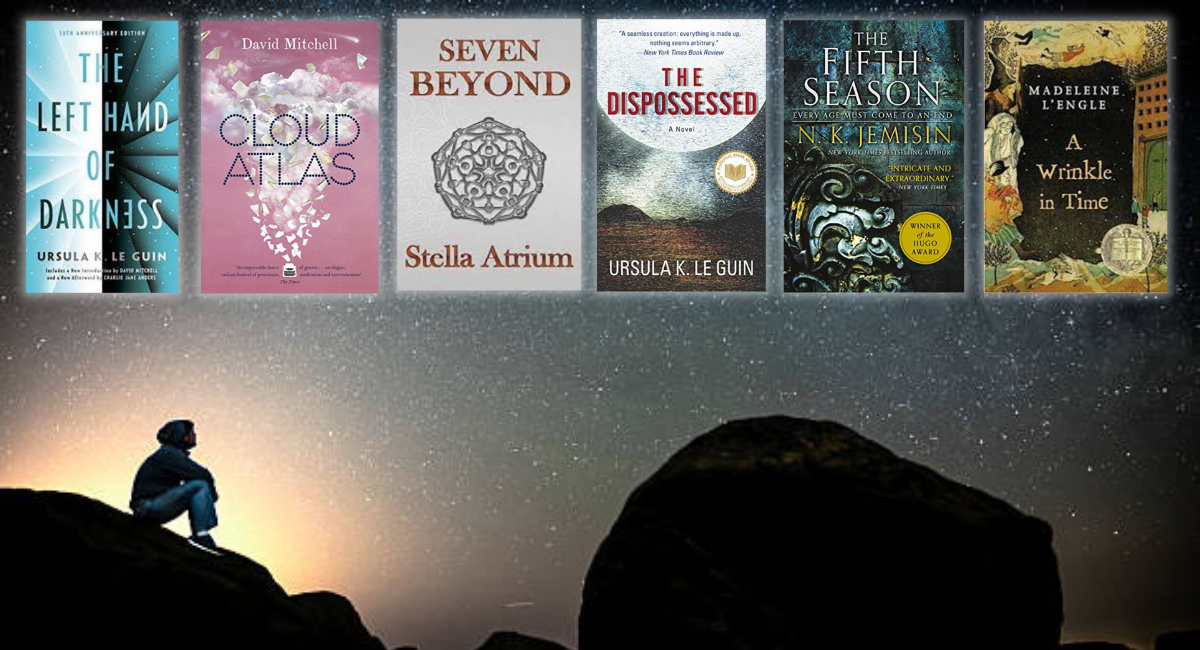



Are you familiar with Roy Wagner’s anthropology course at the University of Virginia titled Fantasy and Social Values? I took it in spring of 2000. In it, we read 6 sci-fi novels and then performed comparative anthropology on the fictitious societies found within. He was a brilliant lecturer and the creative thought behind the twist of this class made it one of my most memorable ever.
Why do I mention this? Of the six novels he required us to read, two of them also appear in this list! Out of the entire galaxy of science fiction, thatc was wild.